- Home
- John Kendrick Bangs
The Lance of Kanana: A Story of Arabia
The Lance of Kanana: A Story of Arabia Read online
Produced by sp1nd, Mary Meehan and the Online DistributedProofreading Team at https://www.pgdp.net (This file wasproduced from images generously made available by TheInternet Archive)
THE LANCE OF KANANA
A STORY OF ARABIA
BY HARRY W. FRENCH
("ABD EL ARDAVAN")
_WITH ILLUSTRATIONS BY GARRETT_
BOSTON LOTHROP, LEE & SHEPARD CO.
COPYRIGHT, 1892, BY D. LOTHROP COMPANY
COPYRIGHT, 1916, BY LOTHROP, LEE & SHEPARD CO.
THE LANCE OF KANANA
Norwood Press BERWICK & SMITH CO. Norwood, Mass. U. S. A.
Encircled by the fiery, trackless sand, A fainting Arab halted at a well Held in the hollow of the desert's hand. Empty! Hope vanished, and he gasped and fell. At night the West Wind wafted o'er the land The welcome dew, a promise to foretell: Hers this result, for which she bade him stand.
"OH, KANANA! OH, KANANA!" CRIED THE OLD MAN, ANGRILY.]
CONTENTS.
CHAPTER PAGE
I. THE COWARD OF THE BENI SADS 11
II. THE OLD SHEIK'S PROMISE 20
III. AT THE FOOT OF MOUNT HOR 27
IV. THE PROMISE 38
V. LED BY A WHITE CAMEL 52
VI. KANANA AND THE CALIPH 61
VII. A PRIZE WORTH WINNING 74
VIII. TO SEEK THE BENI SADS 86
IX. FOR ALLAH AND ARABIA 100
X. KANANA'S THIRD MISSION 115
XI. THE SACRED GIRDLE 125
XII. KANANA'S MESSENGERS 135
XIII. THE LANCE OF KANANA 147
LIST OF ILLUSTRATIONS.
"Oh, Kanana! Oh, Kanana!" cried the old man, angrily (Page 21)_Frontispiece_
Kanana stood upon the very edge of the white porch 42
"Dost thou believe Kanana spoke in fear?" 68
The silent figure demanded and received respect 94
Kneeling, he received the blessing 134
"I gave it to him," said Kahled, solemnly 164
THE LANCE OF KANANA
I
THE COWARD OF THE BENI SADS
Kanana was an Arab--a Bedouin boy of many years ago, born upon thedesert, of the seed of Ishmael, of the tribe of Beni Sad.
It seems well-nigh impossible that the Bedouin boy could have lived whowas not accustomed to the use of the sword and lance, long before hereached the dignity of manhood.
The peculiar thing about Kanana was that he never held a lance in hishand but once; yet many a celebrated sheik and powerful chieftain of hisday lies dead, buried, and forgotten long ago, while the name of Kananais still a magic battle-cry among the sons of Ishmael, and his lance isone of the most precious relics of Arabia.
The old mothers and the white-haired veterans love to tell the story ofthe lance of Kanana; their black eyes flash like coals of fire when theysay of it that it rescued Arabia.
The Beni Sads were a powerful tribe of roving Bedouins. Kanana was theyoungest son of the venerable chief; the sheik who in the days of hisstrength was known from the Euphrates to the sea as the "Terror of theDesert."
By a custom older than the boyhood of King David it fell to the lot ofthe youngest son to tend his father's sheep. The occupation was notconsidered dignified. It was not to Kanana's liking and it need not havelasted long; for the Terror of the Desert thought more of makingwarriors than shepherds of his sons, but greatly to his father's disgustKanana refused to exchange his shepherd's staff for a warrior's lance.It was not that he loved the staff, but that he objected to the lance.
The tribe called Kanana effeminate because he was thoughtful and quiet,where other boys were turbulent, and as he grew older and the boyishfancy became a decided conviction against the combats constantly goingon between the different tribes, they even called him a coward and saidthat he did not dare to fight.
There is but one name more bitter than "coward" to the Arab. That nameis "traitor," and after being called a coward almost all his life, thevery last words which Kanana heard from the lips of his countrymen camein frantic yells, calling him a traitor.
To-day, however, it is always with throbbing hearts and flashing eyesthat they repeat the story of the Lance of Kanana that rescued Arabia.
Until he was five years old, Kanana rolled about in the sand andsunshine, like the other children, with nothing on him but a twistedleather cord, tied round his waist.
Then, for five years, according to the custom of his people, he helpedthe women of his father's tent; shaking the goat-skin filled with creamtill it turned into butter; watching the kedder upon the fire, dryingthe buttermilk to be ground into flour, and digging kemma, which growlike truffles, under the sand.
After he was ten, for three years he watched the sheep and goats and theshe-camels. That was the regular course of education through which allBedouin boys must pass.
When he reached the age at which Ishmael was sent away with Hagar byAbraham, he was supposed to drop all menial labor and take his placeamong men; making a position for himself according to the fightingqualities which he possessed.
Kanana's fighting qualities, however, were only exhibited in the warfarewhich now began between him and his father.
There were at that time very few occupations open to the Bedouin boy.The tribe was celebrated for its men of learning and boasted the mostskillful physicians in all Arabia; but they had all won their firstlaurels with the lance, and none of them wanted Kanana.
Three times his father came to him with the question: "Are you ready tobe a man?" and three times Kanana replied, "My father, I can not lift alance to take a life, unless it be for Allah and Arabia."
How he came by a notion so curious no Arab could tell. The lad well knewthe old decree that the hand of the Ishmaelite should be against everyman, and every man's hand against him. He knew that every Arab of thedesert lived by a warfare that was simply murder and robbery. Was he notan Arab, and an Ishmaelite?
Alone, among the sheep and camels, he had thought out his own theory.Kanana said to himself, "I am taught that Allah created these animalsand cares for them, and that I cannot please him if I allow them tosuffer; it must be surely that men are more precious to Allah thananimals. Why should we kill one another, even if we are Arabs andIshmaelites?"
The menial tasks still allotted to Kanana grew more and more irksome.His punishment was far more keen than the tribe supposed; no one dreamedof the sharp cringe of pain with which he heard even the children callhim a coward.
There were some faculties which Kanana possessed that made the warriorsall envy him. He had a remarkable power over animals. No other Beni Sadcould ride a camel or a horse so fast as Kanana. The most refractorycreature would obey Kanana. Then, too, Kanana was foremost in the gamesand races. No other shepherd's eye was nearly so quick as Kanana's todetect an enemy approaching the flocks at night. No other young Bedouin,watching the ripening grain, could throw a stone from his sling so farand so accurately at the robber birds.
These accomplishments, however, only made his father the more angry thatKanana would not turn his gifts to some more profitable end.
Every year for three months--from planting to harvest-time--the BeniSads encamped upon a river bank, on the outskirts of the Great Desert.
The encampment numbered nearly five hundred tents set in four rows asstraight as an arrow flies.
These
tents, of black goats'-hair cloth, were seven feet high in thecenter and five feet high on the sides. Some of them were twenty feetbroad, and each was divided by a beautiful hanging white Damascuscarpet. The men occupied one side, and the women and children the other.The favorite mare and the most valuable of the camels always slept bythe tent, and the master's lance stood thrust into the ground at theentrance.
Far as the eye could reach, up and down the sluggish river, a field ofripening grain filled the narrow space between the yellow water and thesilver-gray of the desert sand.
Here and there, through the grain-field, rose curiousperches--platforms, constructed upon poles driven into the ground. Uponthese platforms watchers were stationed when the grain began to head,and there they remained, night and day, till it was harvested,frightening the birds away.
Once a day the women brought them food, consisting of buttermilk, driedand ground and mixed with melted butter and dates; these same womenrenewed the supply of stones to throw at the birds.
The watchers were old men, women who were not needed in the tents, andlittle children; but all alone, this year, upon the most distant perch,sat Kanana.
There was not one of the tribe but felt that he richly deserved thisdisgrace; and Kanana could see no way to earn their respect, no way toprove himself a brave fellow. He was glad that they had given him themost distant perch, for there he could bear his hard lot, away fromjests and jeers.
The women who brought the food stopped for a long time at some of theperches, reporting all the news, but they never troubled themselves torelieve Kanana's solitude. The perches were too far apart forconversation. Kanana had always time enough to think, and as the graingrew yellow this year, he came to two positive conclusions. He firmlyresolved that before the reapers entered that field he would dosomething to convince his people that he was not a coward; failing that,he would hang his head in shame, acknowledge that they were right, andfly forever from their taunts.

 The Genial Idiot: His Views and Reviews
The Genial Idiot: His Views and Reviews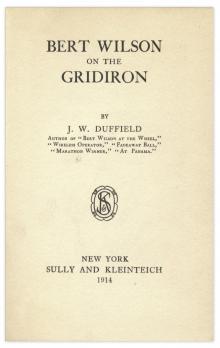 Bert Wilson, Marathon Winner
Bert Wilson, Marathon Winner The Enchanted Typewriter
The Enchanted Typewriter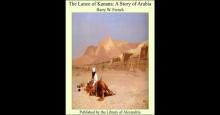 The Lance of Kanana: A Story of Arabia
The Lance of Kanana: A Story of Arabia Coffee and Repartee
Coffee and Repartee The Idiot at Home
The Idiot at Home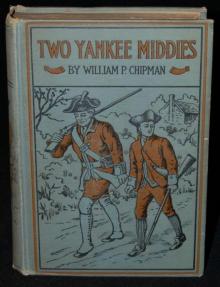 Budd Boyd's Triumph; or, The Boy-Firm of Fox Island
Budd Boyd's Triumph; or, The Boy-Firm of Fox Island The Pursuit of the House-Boat
The Pursuit of the House-Boat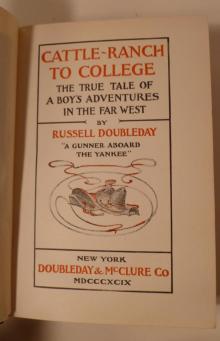 Cattle-Ranch to College
Cattle-Ranch to College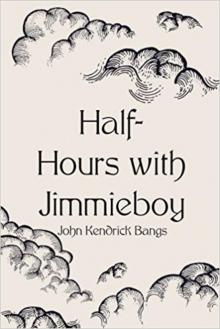 Half-Hours with Jimmieboy
Half-Hours with Jimmieboy Bikey the Skicycle and Other Tales of Jimmieboy
Bikey the Skicycle and Other Tales of Jimmieboy Toppleton's Client; Or, A Spirit in Exile
Toppleton's Client; Or, A Spirit in Exile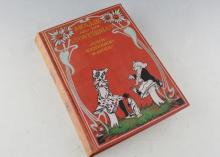 Mollie and the Unwiseman
Mollie and the Unwiseman The Inventions of the Idiot
The Inventions of the Idiot Andy the Acrobat
Andy the Acrobat In Camp With A Tin Soldier
In Camp With A Tin Soldier Angel over the Right Shoulder
Angel over the Right Shoulder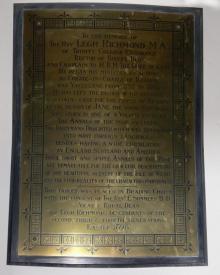 Annals of the Poor
Annals of the Poor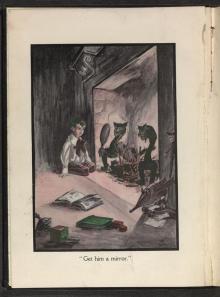 Andiron Tales
Andiron Tales Andy at Yale
Andy at Yale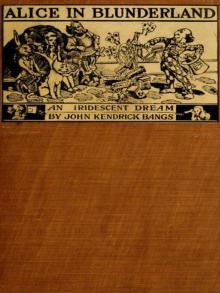 Alice In Blunderland
Alice In Blunderland